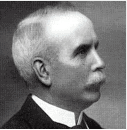I once got the sack on the second day of a new job, on grounds of incompetence. I had had no forebodings of what was to come; I was simply undone by my natural curiosity. Even if I had seen it coming, it wouldn’t have bothered me too much. As with much of one’s life, when apparently bad things happen, one just dusts oneself down, shakes one’s head in puzzlement and wanders after the next cornucopia.
I joined the company in question on the rebound from the messy collapse of an Internet company, set up during the dot.com boom to trade commodities online. I’d started out as a lowly programmer but rapidly shot up the hierarchy and popped out at the top, as IT director. The brief glories of the boom inevitably turned to bust and the company collapsed in a fog of ill-informed recriminations.
In any event, there I was, older, wiser, and with several years experience developing Internet Applications under my belt, settling in to the relatively tranquil existence of developing websites for a software house.
My first task was to create a simple trading site for fabrics. I’d bottomed out the requirements with the client and cut the normalised database, so that I had a clear idea of the Data model. As it happened, it all fitted well and there were few uncertainties besides the usual problem of having to trade in the metric system, whilst the industry still thought in terms of imperial measurements. I was just stocking the database with test data when my concentration began to waver slightly. I came back down to planet earth, from my normalized, rational fantasy world, to realize that the chap who’d joined the company at the same time as me was talking to a client, in an irritatingly loud and pompous voice. He was pontificating on the technology behind the website he was about to construct.
He was droning on about the advantages of Dynamic HTML. At first, I didn’t really listen as I was engrossed in my own work. Shortly, however, I realised with a shock that the guy was talking with immense authority on a subject he knew absolutely nothing about. In fact, it was hard to work out the various misconceptions he possessed, as he had got it so wrong. The client was nodding wisely and agreeing vaguely that DHTML was the way to go with his website. I suspected, however, that his response would have been similar if it had been suggested that ‘friendly bacteria’ was the way forward for websites.
After his client left, I was intrigued enough to wander over to his desk and engage him in conversation. I felt convinced that my colleague was a ‘New Man’ and was curious to see if my hunch was correct.
A ‘New Man’ is a term you may not be familiar with. A ‘New Man’ is one who, in response to economic or psychological pressures, reinvents himself as someone else, usually as an expert with qualifications and experiences. He takes advantage of any upheaval in society to become someone he isn’t. The classic examples are the men who managed to insinuate into the post-war French government on account of their heroic, and entirely fictional, feats in the French Resistance movement. Such people appear in every society and rarely get found out, because of the energy they expend in establishing their false credentials. Occasionally one hears of surgeons who are unmasked as school dropouts, without any medical training at all; head teachers with a string of fake qualifications. There has recently been a case of a computer specialist, with a bogus degree, whose testimony as an ‘expert’ witness had jailed several people. I once had an IT director who had succeeded so well, as a New Man, with an entirely bogus identity, that he had established enough real experience to launch a legitimate career. Freed from the normal moral restraints that generally guide our lives, these ‘New Men’ are capable of deceptions that few of us would imagine possible. Their daring is their greatest asset.
My usual technique with IT ‘New Men’ was to exploit my biggest natural asset, namely my ‘Nincompoop’ face. Some people have a face that lends them an effortless dignity, a natural gravitas that adds weight to even their most fatuous statements. My face has quite the reverse effect. This can be a problem on any occasion that demands the caste of authority, but is perfect for this sort of ‘undercover’ work, since people tend to drop their guard.
It would never have occurred to my colleague that I’d had years of experience using DHTML. I asked him a few simple questions, to which anyone with even a passing acquaintance with the science of browsers and Websites would have known the answer. He was all at sea, though he flannelled with such authority and fluency that I was momentarily dazzled enough to doubt my own knowledge and understanding. I thanked him and went back to my desk. Yes, a New Man, if ever I saw one. Of course, it was really none of my business, but curiosity can sometimes get the better of you.
That evening, after I got back home, I got a very apologetic call from the Agent, telling me not to turn up again at my new place of work. The Director had phoned him up and told him that he’d been advised on some authority that I knew nothing of the work I was supposed to be doing, and he was refusing to let me back on-site. It seems that the ‘New Man’ had gone to the IT director as soon as I’d left the building, and regaled him with the story of how I’d had to ask him a whole lot of very simple questions about Website construction. Questions that I ought to have known the answer to if I was to be trusted with their website development.
It could have been that my ‘nincompoop’ questions really had backfired on me, and convinced him that I knew nothing, but I’m pretty sure that he realised I’d tricked him and that I was on to his secret. He’d therefore opted for a pre-emptive strike. In any event, he was convincing enough for the IT Director, as most New Men are. Pursuit of your own survival goes hand-in-hand with acutely developed powers of persuasion. .
God, I find, rewards you for placidly accepting your fate without rancour, and gives you bonus points for seeing the funny side. I felt a bit foolish about overusing my ‘Nincompoop’ trick but shrugged the incident off and a second phone-call that night was from another agent, with the offer of a better-paid job nearer home.
I have to confess that, despite my good humour, I sent a letter to the Director, with a copy to the client for whom I started to write the website, pointing out a few facts that, in his haste, he had forgotten to establish before asking me to leave, such as my proven track record in the industry. I also gave a brief summary of the various employment laws he had breached. The result of this missive was explosive, and the agent, now angry rather than apologetic, told me the Director was threatening to sue, on the grounds that I’d undermined the good commercial relationship he’d had with his client. He didn’t, of course, and the agent wasn’t even able to blacklist me as he threatened. Funnily enough, the new man’s supercharged DHTML website never appeared, and the company too vanished within three months. There was, evidently, only one client.
I forgot the whole incident, until several years later. I’d gone to visit a relative in hospital and was discussing his progress with the hospital doctor. In the midst of the conversation, a man came up looking very important and had a brief conversation with the doctor. The face looked oddly familiar. Was my memory playing tricks, or was this the ‘New Man’ who had been responsible for my abrupt sacking? I tried to look nondescript. He strode off. The doctor apologised.
“I’m so sorry, I just had to have a quick word with the consultant; now where were we?”





Load comments